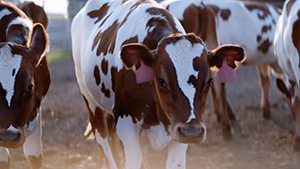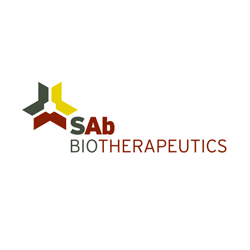 Antibodies can be powerful tools for treating and preventing infectious diseases, autoimmune diseases, and cancer. Historically, however, these treatments relied on the use of animal antibodies, which can cause allergic reactions in humans. Although human antibodies have also been used as treatments, they are often not potent enough or are difficult to source from human donors. Another challenge is developing antibody treatments that can target multiple locations on a single antigen, such as a virus or cancer cell, and remain active even if that antigen mutates. But these are obstacles that can—and have been— overcome.
Antibodies can be powerful tools for treating and preventing infectious diseases, autoimmune diseases, and cancer. Historically, however, these treatments relied on the use of animal antibodies, which can cause allergic reactions in humans. Although human antibodies have also been used as treatments, they are often not potent enough or are difficult to source from human donors. Another challenge is developing antibody treatments that can target multiple locations on a single antigen, such as a virus or cancer cell, and remain active even if that antigen mutates. But these are obstacles that can—and have been— overcome.
SAb Biotherapeutics, a Sioux Falls-based biopharmaceutical company, developed an antibody platform to create fully-human polyclonal antibodies (polyclonals) using cows. “Polyclonals are the natural way that our bodies fight disease,” said Eddie Sullivan, Co-Founder, President & CEO of SAB Biotherapeutics. Unlike a monoclonal antibody that binds to a single location on an antigen, a polyclonal antibody binds to multiple locations, increasing the likelihood that it will continue to be effective if the antigen mutates.
The company uses genetically engineered cows to produce fully-human polyclonal antibodies against influenza, COVID-19, type 1 diabetes, and other diseases. “We hyper-immunize these cows by vaccinating them every 21 to 28 days, which elicits robust immune responses that provide us with very high titers of antibodies that are targeted to a specific disease,” describes Sullivan. After collecting large quantities of highly concentrated antibodies from their cows, scientists at SAb Biotherapeutics purify them to give to patients as treatments.
To date, SAb Biotherapeutics has produced fully-human polyclonal antibodies against both seasonal and pandemic influenza, as well as many SARS-CoV-2 variants, including Omicron. The company is also working on an antibody treatment for Clostridioides difficile, or C. diff, a bacterial infection in the gut that can cause inflammation, severe diarrhea, dehydration, and sometimes death. “One of the advantages of using a polyclonal antibody in C. diff is that we can target both the bacteria itself and the toxins that it produces all in the same product,” Sullivan said.
NIH plays the absolutely essential role of bridging that financial gap between a concept and the ability to produce a product that advances development in the clinic.
Although the company’s platform hasn’t yet gone to commercialization, several antibodies developed using the platform demonstrated safety and efficacy in clinical trials for influenza, MERS, and COVID-19. These efforts were supported by several Small Business Innovative Research (SBIR) and Small Business Technology Transfer (STTR) grants from the National Institute of Allergy and Infectious Diseases (NIAID). For example, a Phase 2a clinical trial of one of SAB Biotherapeutics’ antibodies reduced the viral load, shortened the timeframe for viral shedding, and improved symptoms by day four in subjects exposed to pandemic H1N1 influenza virus. This clinical trial is now moving into Phase 2b.
“Knowledge that we gained from that influenza program translates into all of the other programs that [SAB] developed moving forward. Those early days of critical funding from NIH allowed us not only to develop influenza products, but also to improve the quality control assays,” Dr. Sullivan noted. Even though the company is targeting multiple diseases, the pathway for developing and manufacturing fully human polyclonal antibodies is the same. “NIH plays the absolutely essential role of bridging that financial gap between a concept and the ability to produce a product that advances development in the clinic and eventually gets FDA approval.”







